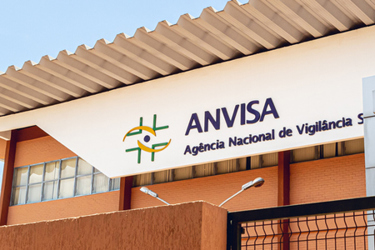How Brazil's New Law Is Redefining The Country's Clinical Research
By Paulo Cesar Fernandes Jr.

Brazil’s regulatory body ANVISA has been proactive in engaging with the pharmaceutical industry and CROs, and its guidance has been consistent: Clinical trial dossiers must be well-structured and complete. Forget about the back-and-forth communications of the past. ANVISA wants submissions that are right the first time. That’s good news for companies that take quality seriously, but it’s a wake-up call for those used to a looser process.
The Agency has significantly evolved in recent years, has profound involvement in ICH, and plays a pivotal role in the country’s clinical research landscape. Recent changes in Brazil, with the enactment of Law 14.784/14, are beginning to energize the country’s clinical trial landscape by increasing predictability and reducing timelines. This effort to strengthen the sector is both commendable and essential, as it brings faster trial execution, greater empowerment of local ethics committees, and clearer post-trial access rules — all contributing to a more predictable and efficient research environment.
Big Pharma Is Paying Attention
Executives from global pharmaceutical companies with affiliates in Brazil are not just watching, they’re acting. They’ve started hosting meetings, holding town halls, and even coordinating road shows to their headquarters to ensure global R&D leaders understand what’s changed here: a new clinical research law designed to make Brazil’s research ecosystem more dynamic. One of the most alluring examples is ANVISA’s current commitment to a total turnaround time of 90 business days for responses following the submission of a new study.
This is a big deal.
Brazil has often been misunderstood or underestimated in global feasibility conversations. Brazil was once known as having strong recruitment rates, but also a lengthy and inconsistent regulatory process. With the full implementation of the new law, upon publication of the Ministry of Health decree, key hurdles, such as the requirement for double ethical approvals, will have finally been removed.
Now, with local leaders actively communicating the message of improved timelines and more predictable regulatory practices to their global decision-makers, the barriers that once limited Brazil’s participation in clinical development are beginning to fall. This shift is helping position the country as an attractive market for sponsors seeking both faster study execution and strong commercial potential.
Post-Trial Access: Now With Predictability
One of the law’s most practical wins is in post-trial access (PTA). Study participants have guaranteed access to the investigational product for up to five years after its market approval. For Brazil, a country with one of the world’s largest institutional health markets alongside a significant private and out-of-pocket sector, this clarity is a game-changer.
In the past, PTA was often an obstacle: The open-ended obligation to provide study drugs indefinitely discouraged sponsors from including Brazil in trials for chronic diseases, as it created both ethical dilemmas and financial risks. With the new framework, the country gains predictability and balance. Patients are protected; sponsors and investigators can plan responsibly; and Brazil becomes a far more attractive destination for global clinical research. The challenge ahead will be ensuring consistent implementation and alignment among stakeholders, but the outlook is positive.
When submitting a trial to the local ethics committee, investigators will now be required to include a specific PTA supply plan as part of the regulatory package. This plan must be agreed upon with the sponsor in advance, ensuring that all relevant details are not only captured in the informed consent form but also evaluated early in the process. By frontloading these discussions, the system becomes more balanced, transparent, and workable for all stakeholders.
The Decree Will Change The Ethics Landscape
The biggest piece still pending is a decree from the Ministry of Health — and it will transform Brazil’s ethics review model. The central ethics committee (EC), CONEP, as we know it, will be replaced by INAEP, a new central regulator for ethics. INAEP will:
- supervise and train local ethics committees (ECs),
- maintain the national electronic system for submissions, and
- ensure consistency across the country.
This empowerment of local ECs should reduce long-standing bottlenecks caused by the dual-approval requirement, where studies had to be cleared both by a local EC and CONEP. That duplicative process often led to extended timelines and uncertainty for sponsors and investigators. By removing this redundancy, Brazil moves closer to international best practices, with a more streamlined, predictable, and efficient pathway for study approvals.
Looking Ahead With Cautious Optimism
Brazilian stakeholders — from pharma and CRO executives to PIs and site staff — are already showing the engagement needed to make these changes work. The momentum is here:
- Sponsors and CROs are seeing a clearer, more reliable path to bringing studies to Brazil.
- PIs and researchers are energized to lead their own initiatives.
- Workers across the ecosystem remain committed to ethics and quality, ensuring Brazil remains a serious global player.
With the right collaboration, this law can position Brazil not only as a promising region but as an essential destination in global clinical research portfolios. It creates a genuine win-win: strengthening the country’s role while expanding patients’ access to new treatment options, both through research participation and within the healthcare system.
About The Author:
 Paulo Fernandes is a seasoned clinical research executive with more than 20 years of experience in global CROs. He is the founder of C2Outcomes, a consulting firm specializing in clinical research, and currently serves as COO at AZD CRO | A2Z Clinical, a clinical research site recently backed by Green Rock, a Brazilian healthcare-focused VC fund. A former president of ABRACRO (the Brazilian CRO Association), Paulo now serves as a board member of the Brazilian Clinical Research Alliance.
Paulo Fernandes is a seasoned clinical research executive with more than 20 years of experience in global CROs. He is the founder of C2Outcomes, a consulting firm specializing in clinical research, and currently serves as COO at AZD CRO | A2Z Clinical, a clinical research site recently backed by Green Rock, a Brazilian healthcare-focused VC fund. A former president of ABRACRO (the Brazilian CRO Association), Paulo now serves as a board member of the Brazilian Clinical Research Alliance.
